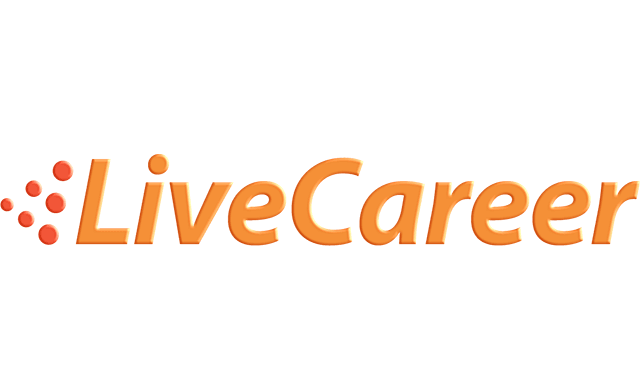
To take full advantage of the field’s growing range of job opportunities, you’ll need to build a resume that is tailored to the professional expectations of hiring managers across the field. Once you have a basic resume in place, you’ll need to adapt it to match the keywords of each new job ad you respond to as much as possible. The more you can customize your resume to each job you seek, the more likely you are to land an interview. Find additional guidance below on how to write a resume for a social worker position.
What to Include
1. Credentials
Credentials are an important aspect of this profession so make sure that you include your academic and licensed credentials right after your name at the top of your resume: for example, Linda Harris, MSW, LCSW.
2. Clients
Social work is a client-focused endeavor. If you don’t clearly state the population you’re currently serving, wish to serve, and have served in the past, it is likely to send an incomplete message at best, and convey misplaced priorities at worst. As you describe your client population make sure that your language is respectful and as current as possible.
3. Accomplishments
Rather than listing your duties in your past positions, list your accomplishments, and if possible, include numbers. For example, you might explain rates of success or improvement experienced by clients as a result of a program you conceived and/or implemented.
4. Soft Skills
Make sure you highlight attributes that are highly valued in the field. Social work is a career where soft skills like communication are vital, so be sure to communicate them.
5. Cover Letter
Always include a cover letter, even when it is not asked for. Make sure you tailor your cover letter to reflect the keywords used in each job ad you respond to. Never think of a cover letter as a burden—a cover letter provides you with an opportunity to bring additional (and even emotional) life to the career story that’s chronicled in your resume.


What to Leave Out
1. Skip the Objective, Keep the Summary
Unless you are a recent graduate, don’t include an Objective section. Instead, begin your resume with a professional Summary section that highlights your relevant experience. Even recent graduates who have extensive and relevant field placements, internships, or volunteer experience should consider forgoing an Objective section in favor of a Summary section that focuses on the value you will bring to your next role.
Begin your summary by describing yourself with a title, such as “Licensed Clinical Social Worker,” or even better, match your self-description as closely as possible to the title used in the job ad, as long as you can do so honestly.
2. Lose the Jargon and Acronyms
Don’t assume the person reading your resume has any idea what you do. Instead, explain anything you think a person with no background in your field might not understand. This will force you to be more descriptive about your past roles and education. It will also ensure that members of the hiring team who do not share your professional training will understand the value you can bring to their organization.
Even before recruiters and hiring managers see your resume, it’s very likely that an automated applicant tracking systems (ATS) will be assessing your resume to narrow the number of applicants reviewed by human eyes. Most ATS are not programmed to scan for acronyms, so to make sure your resume makes it into human hands, spell out all acronyms, even those in wide usage within the field.
Besides, even the eventual fellow social worker who does review your resume may have a slightly different specialty or different training than you, so it is best never to assume that those reading your resume are familiar with the same acronyms you are.
3. References? Don’t Even Mention Them
Don’t include your references, or even the phrase “references available upon request” on your resume. If you are asked to provide references later in the process you can provide contact information in a separate document.
What to Emphasize
1. The Recent Graduate
What if you don’t have much experience yet in the social work field? Lead with your education, rather than rely on a chronological organization structure that might emphasize your inexperience. Your skills section should combine abilities and knowledge gained from the classroom, internships, and whatever work world experience you’ve had to date.
2. The Experienced Social Worker
For social workers who have been in the workforce longer, it makes sense to lead with a section focused on work experience in reverse chronological order, with a section on education near the bottom of the document. Since you will likely have lots of skills and accomplishments to choose from, you’ll want to focus on those that are most closely aligned with the job description. Be disciplined about filtering your experience so that you avoid large blocks of text and leave room for white space.
3. The Career Shifter
What if you have lots of experience but want to switch your professional focus—for example, from clinical to educational social work? Consider reorganizing your resume in a way that focuses on transferable skills by placing an Accomplishments or Skills section higher up in your resume, and listing a scaled-down chronological work summary just before your education section.
What to Modify
1. Replace Paragraphs with Bullet Lists
Try not to present your experience in the form of lengthy paragraphs. Instead, be as concise as possible and separate different aspects of your experience into bullet lists with the details presented in each item, taking up no more than 1-2 lines of text.
2. Continue Editing Your Education
Filter the section of your resume where you list Continuing Education and Career Development so that you only list the seminars and courses that are relevant to the job description.
3. Craft Your Keywords
Tailor your resume, particularly your Professional Summary, to every new position you apply to. This may mean retaining the substance of your accomplishments but tweaking the wording to mirror the exact vocabulary used in the job ad.
For example, if you are accustomed to using the term “clients” but the ad you are responding to uses the term “patients,” you should use that terminology as much as possible.
Why bother to edit your resume for each new job with this level of detail? Because many employers use ATS that look only for matches to exact keywords used in the ad. If you want to clear this first obstacle, it is essential that your resume use the same wording, or you might be disregarded for a job you are in fact a strong match for.
LiveCareer has been helping job seekers build stronger resumes and cover letters since 2005. Access a wide variety of resume templates to work from, or put our resume builder to use, and get step-by-step assistance in constructing a top-notch resume in no time at all. And if you’re really stuck on how to get started on your social worker resume, check out our social worker resume example.

CAREER ADVICE

GOV TALK
